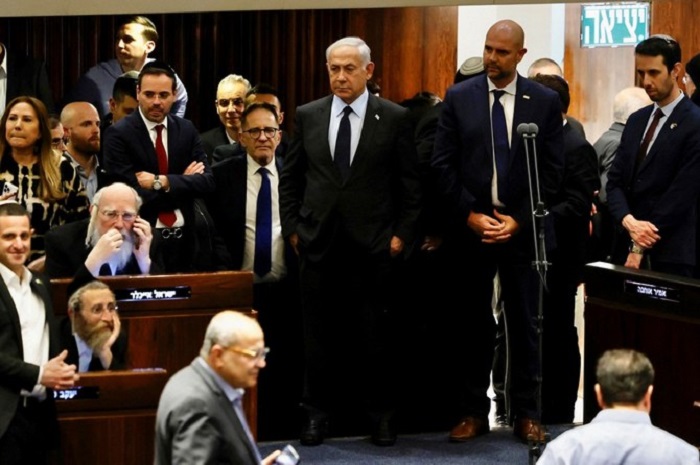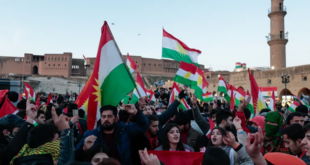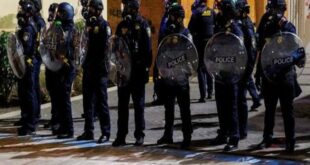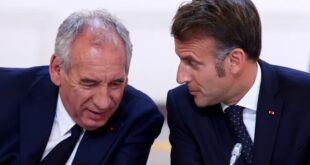
Amid protests and increasing international pressure, Israeli Prime Minister Benjamin Netanyahu on Monday agreed to suspend his proposed judicial overhaul. While in a televised speech he said he had decided to delay the vote “in order to give time for discussion,” in reality all he is doing is he is buying time to try and figure out how to solve the dilemma he is facing.
At this point in his career, in his sixth term in power, Netanyahu has one main target: staying out of jail. As a seasoned politician, he is driven by a sense of survival. He is facing accusations of fraud, breach of trust and bribery, which he denies. He needs to stay in power to stay out of jail. However, to do that, he needs to please the band of extremists in his government. And pleasing them means upsetting the street and Israel’s allies.
Before Netanyahu paused his reforms, the Histadrut labor federation — the General Organization of Workers in Israel — announced a general strike. The prime minister could not handle the general discontent or the international indignation. On the other hand, he cannot afford to lose any of his extremist partners. Hence, the best way to solve this dilemma was to postpone taking a decision.
Netanyahu is the king of deal-making. He is pragmatic and he does what it takes to get what he wants. Being pragmatic does not necessarily mean he is rational. Buying time will not change the choices he will face at some point in time. What he is banking on is making interim deals that can somehow become permanent. Netanyahu is very skilled at making distinctions between those whose acquiescence he requires and those he can simply discount.
Yoav Gallant, a member of Netanyahu’s Likud party who reached the rank of major general in the Israel Defense Forces before entering politics, was fired by Netanyahu for objecting to the judicial reform. On the other hand, he had to humor Itamar Ben-Gvir, who is an integral part of his coalition. In return for supporting the delay, Ben-Gvir will be allowed to head his own armed militia outside of the jurisdiction of the Israeli army and police. This militia will not have to abide by the normal rules of engagement.
The Israeli prime minister’s plan seems to be to hang on to power as long as he can and delay the inevitable
Dr. Dania Koleilat Khatib
Are we now back to the times of the Haganah and its offshoot, the Irgun? Probably. How will world opinion perceive such terrorism? Today is different from the early 20th century. Transgressions can easily be documented using a smartphone and spread all over the world. Will the world accept a new Haganah? Will the world’s Jewry identify with it? Probably not, and most likely they will be disgusted by it.
Where do the Palestinians stand in all this? They will be evicted from their homes, persecuted and even killed, and there will be no functioning justice system to defend them. Though the judicial system has always been biased against them, it was always there as a platform through which they could air their grievances. They do not even have the right to exist as a people, according to far-right Finance Minister Bezalel Smotrich, a main pillar of Netanyahu’s coalition. The Palestinians have no choice but to resist. A third intifada? Probably.
A rational actor would have thought through all these outcomes, but Netanyahu does not seem to be one of them.
How will the US look at Israel once it legitimizes Ben-Gvir’s illegitimate paramilitary force? How will Israel be different from some rogue country in South America? Can the US, which praises Israel for being an oasis of democracy in a desert of dictatorships, still stand by its ally? Will the US stand by an Israel where the rule of law is subjugated by the will of those in power and where the aim of the entire system is to preserve itself rather than serve the people.
However, Netanyahu is not thinking as a statesman, he is thinking as a politician. Tactical gains are what matter to him. What he can get now is what is most important. And his current most important goal is to stay out of prison. He is dividing the country, he is empowering the fanatics, he is driving away the Jewry worldwide and slowly losing the country’s allies. Nevertheless, this does not seem to matter. Netanyahu’s plan seems to be to hang on to power as long as he can and delay the inevitable. While hanging on to power, he tries to make deals and put on a balancing act to eliminate the negative externalities that might result from those deals.
He postponed the judicial overhaul to calm the raging streets and appease international allies. In parallel, to get the acquiescence of Ben-Gvir, he allowed him to have his militia that will go on a killing spree. Again, he can always use terror accusations against the Palestinians and a public relations campaign to attenuate the gravity of the crimes committed. This is the art of transactional politics aimed at keeping one’s position and gaining time.
However, Netanyahu does not seem to realize that this is not sustainable and it will blow up in his face at some point. When this tactic no longer works, what can he do? Provoke a fight with Lebanon or Iran, similar to what Ehud Olmert did in 2006 to divert public attention away from corruption accusations? Maybe, but this option involves too many risks and did not work well for Olmert. In fact, Olmert had to resign after his adventure in Lebanon as his popularity tanked. He eventually ended up in jail in February 2016.
In short, Netanyahu is buying time using these tactics of self-preservation. However, at some point, this will no longer work and he will be forced to face a tough reality, in which he will be held accountable.

By Dr. Dania Koleilat Khatib is a specialist in US-Arab relations with a focus on lobbying. She is president of the Research Center for Cooperation and Peace Building, a Lebanese nongovernmental organization focused on Track II.




 World Opinion | Alternative Média زوايا ميادين | صوت من لا صوت له Débats De Société, Questions, Opinions et Tribunes.. La Voix Des Sans-Voix | Alternative Média
World Opinion | Alternative Média زوايا ميادين | صوت من لا صوت له Débats De Société, Questions, Opinions et Tribunes.. La Voix Des Sans-Voix | Alternative Média




